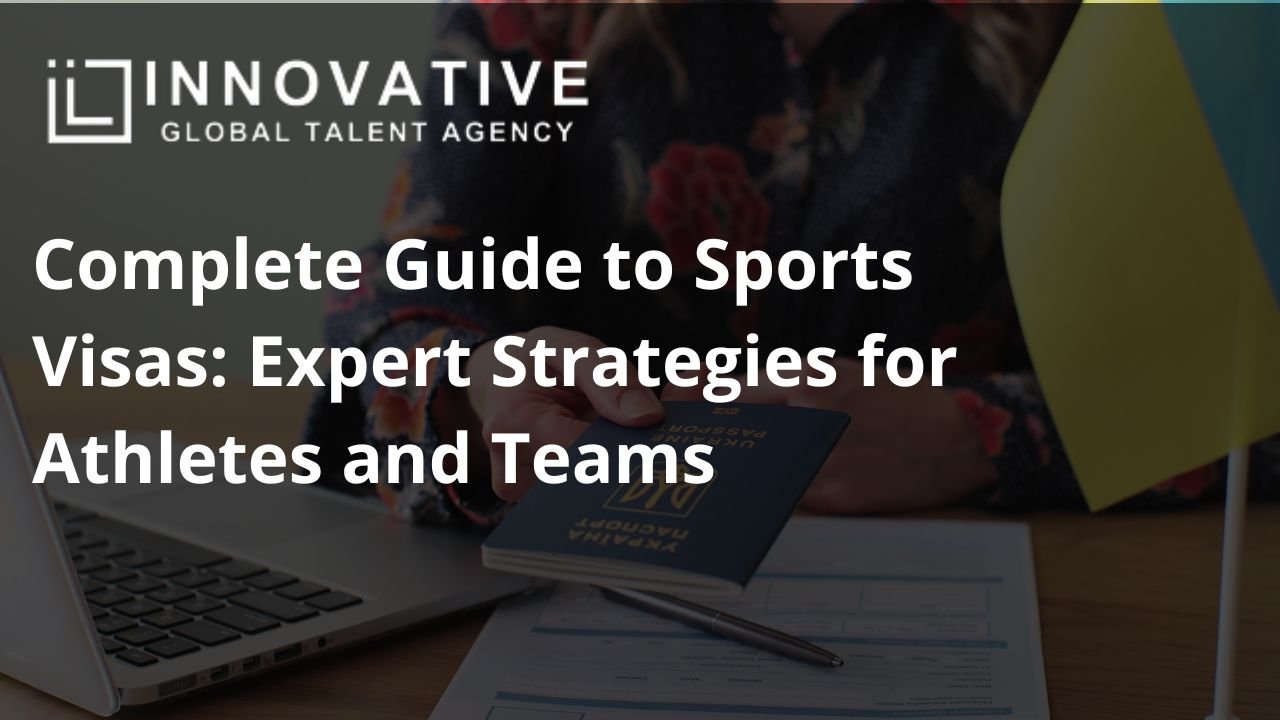Complete Guide to Sports Visas: Expert Strategies for Athletes and Teams
Navigating the complexities of international sports immigration is crucial for athletes, coaches, and teams looking to compete in the United States. Whether you're an Olympic athlete, professional competitor, or sports organization, understanding the right visa options and strategies can shape your long-term success. This guide provides a comprehensive breakdown of sports visa options, expert strategies, and key considerations to ensure a smooth immigration process.
-
+1 (561) 740-8303
-
Understanding Sports Visas: Choosing the Right Path
The first step in any successful immigration strategy is selecting the appropriate visa category. Various visa options exist, each catering to different levels of athletic recognition and career goals.
The P-1 Visa: The Go-To Option for Athletes and Teams
Designed for internationally recognized athletes and teams.
Covers both individual competitors and entire teams.
Includes essential support personnel like coaches and trainers.
Requires proof of participation in high-level competitions.
The O-1A Visa: For Athletes of Extraordinary Ability
Ideal for elite athletes with exceptional achievements.
Requires strong documentation of sustained national or international recognition.
Offers greater employment flexibility compared to the P-1 visa.
Can lead to permanent residency through the EB-1A Green Card.
Building a Strong Visa Petition: Documentation & Evidence
A well-prepared visa petition significantly improves the chances of approval. Athletes and organizations must gather extensive supporting documents to strengthen their applications.
Documentation for a Successful Application
Competition records, rankings, and performance statistics.
Competition records, rankings, and performance statistics.
Media coverage, endorsements, and sponsorship deals.
Expert testimonials from recognized professionals in the sport.
Proof of salary, contracts, and professional earnings.
Demonstrating International Recognition
Awards, honors, and accolades received in the sport.
Evidence of participation in major tournaments and championships.
Membership in elite athletic organizations.
Sports Immigration for Teams & Support Staff
Managing visas for entire teams and their support personnel requires strategic planning to ensure compliance and smooth operations.
Team-Based Immigration Planning
Coordinating athlete and support staff visas.
Ensuring compliance with league regulations and team schedules.
Managing travel and training logistics.
Visa Considerations for Support Personnel
Coaches, trainers, and medical staff may require separate visa classifications.
Support staff roles must align with the athlete’s or team’s visa requirements.
Proper documentation is essential for seamless approvals.
Contracts & Immigration Compliance: Aligning Strategies
Athletes and sports organizations must align contract terms with immigration requirements to avoid legal complications.
Structuring Contracts for Visa Validity
Ensure employment contracts match visa duration.
Include provisions for international travel and competition.
Maintain compliance with income and salary requirements.
Managing Salary & Earnings for Visa Compliance
Meet minimum income thresholds for different visa categories.
Consider sponsorship and endorsement earnings.
Ensure legal documentation of all income sources.
Long-Term Immigration Planning: Staying Ahead
Maintaining visa compliance and exploring pathways to permanent residency are essential for long-term career stability in the U.S.
Tracking Visa Validity & Extensions
Regularly monitor visa expiration dates.
Plan for renewals and extensions well in advance.
Keep records of ongoing achievements and career progression.
Pathways to Permanent Residency
The EB-1A Green Card for extraordinary athletes.
Dual intent considerations for visa holders seeking residency.
Strategic planning for status adjustments.
Advanced Strategies for Sports Immigration
For high-level athletes and teams, having contingency plans and emergency strategies in place can prevent unexpected setbacks.
Handling Emergency Situations
Expedited visa processing for last-minute competition entries.
Emergency replacements for injured athletes.
Legal support for unexpected immigration issues.
Budgeting & Timeline Management
Account for visa processing fees and legal costs.
Plan travel and training schedules to align with visa processing timelines.
Ensure coordination between athletes, agents, and legal representatives.
Career Development & Future Planning
Beyond securing a visa, athletes should focus on career progression, industry recognition, and long-term sustainability.
Documenting Athletic Achievements
Keep detailed records of career milestones and new achievements.
Strengthen visa renewal applications with updated documentation.
Building a Strong Professional Network
Engage with legal experts specializing in sports immigration.
Connect with industry professionals, sponsors, and sports organizations.
Join athlete associations to enhance credibility.
Conclusion
Success in sports immigration depends on careful planning, strong documentation, and compliance with visa regulations. Whether you're an individual athlete or part of a larger team, understanding your visa options and maintaining a proactive approach will ensure a smooth and successful career in the United States.
By following these strategies, athletes and sports organizations can confidently navigate the complex world of sports immigration, securing opportunities and long-term success in international competitions.

